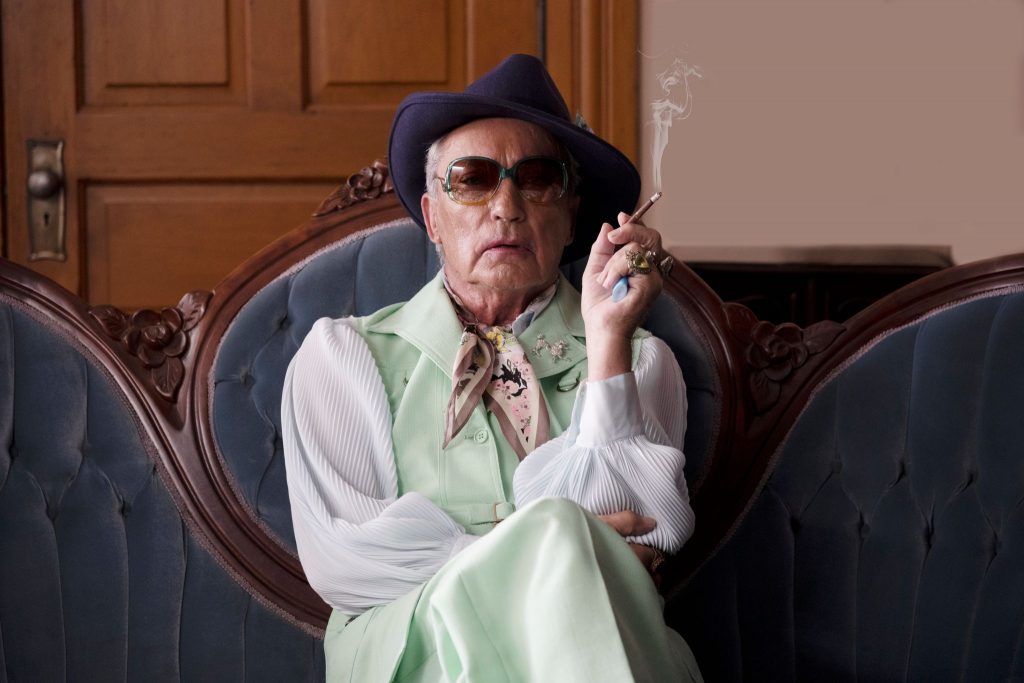“Where will we dance?”
The elderly gay man asks the young queer bartender the question with all sincereity, confused about where gay men will be able to congregate, much less dance, once the small town’s last remaining gay dance club is closed.
The criminally young bartender only shrugs, hardly interested in explaining to his withered forebear that, should young gays care to momentarily take their eyes off the electronic appendage at their fingertips, they can dance pretty much anywhere they please. An exclusively gay bar is as outdated as the sherbert green pantsuit the older queen is wearing.
The young man might as well be talking to a ghost, which, in the new film Swan Song, Pat Pitsenbarger is, for all practical purposes. He haunts his old beauty parlor that once made him the most famous hairdresser in town, the lakeside he once cruised, the remnants of the home he shared with the partner he lost to AIDS.
You might be an older gay, like me, if you actually remember wearing pantsuits or dancing to now-vintage disco or the pain of losing someone you loved at such a young age that the grief carved you up inside. Swan Song doesn’t take us back there, explicitly. It remembers it by way of a dusty rear-view mirror, in flashes bearing a polaroid filter. Is it a gay Trip to Bountiful, where you not only cannot go home again, but that home doesn’t exist at all anymore.
As an achievement in filmmaking, Swan Song is slight. As a vehicle for storytelling, it will hit an emotional bullseye for any gay man who made it out of the 1980s alive and has a few ghosts of their own still hanging around.
It may be for relics of the 1980s like me, then, that Swan Song may be most effective. The experience of watching it may even be more sweet than bitter for you, depending on your life experience.
Something in me wants to return to that young bartender and tell him of the sacrifice and honor and heroism on display in those years, to school him on his proud lineage.
That fictitious bartender would very likely respond by granting only the slightest nod of his head before returning to his phone.
Mark
p.s. How old are you when you realize that life, and art, are about the passage of time, always and forever?





